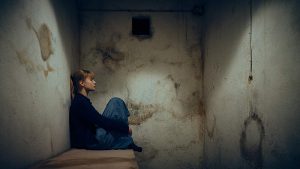NORDIC crime thrillers don’t come much better than the Danish Department Q quadrilogy.
The Keeper of Lost Causes (2013), The Absent One (2014), A Conspiracy of Faith (2016) and 2018’s The Purity of Vengeance aren’t as recognised as Sweden’s Girl With The Dragon Tattoo series, but they share similar cinema DNA.
Both showcase expertly crafted and labyrinthian plots, interesting moral dilemmas and emotional complexity in their characters.
The Danish series features two main characters: Nikolaj Lie Kaas as Carl Mork and Fares Fares as Assad.
Mork is a brilliant investigator but a damaged outcast whose abrasive manner and past experiences have seen him shunted into a seemingly under-resourced and thankless role looking into long ignored cold cases from a dank basement office.
Assad is also an outsider, largely due to his race, and his potential is being ignored. He has found a potential ally in Mork and their unlikely and volatile partnership achieves results against the odds.
Over the series of four films the reputation of their two-man department has grown but the friction with their colleagues and bosses always remains.
The Purity of Vengeance begins with a prologue from 1961 in which a teenager is sent to a so-called reform school for wayward women located on remote Sprogo Island.
We jump to the present day and two workmen renovating an old Copenhagen apartment discover a hidden room behind a false wall. In the room behind the wall are three mummified corpses sitting around a dining table with one empty seat left.
Detective Superintendent Mork is quick to snatch the case from colleagues and Department Q eventually uncovers a series of decades-old crimes and official cover-ups that continue today as part of an horrific conspiracy.
I love the way these Nordic and Scandi plots get you in.
The film is efficiently directed by Christopher Boe and based on a novel by Jussi Adler-Olsen, as have the previous three films.
The process of cutting to flashbacks is particularly effective because the choice of scenes and their timing in the film presents key information that enhances audience investment in the present-day narrative.
While Lie Kaas and Fares are central to the film’s drive and emotional centre, all the supporting characters are interesting and relevant.
Three actresses – Fanny Bornedal as Nete and Clara Rosager as Rita, both in the flashbacks, and Johanne Louise Schmidt as the third Department Q member Rose – register strongly, as does veteran Anders Hove as Dr Carl Wad who is an important link between past and present events.
The Purity of Vengeance doesn’t offer the most thrilling mystery of the series, but it packs the most emotional punch, which is befitting what is meant to be the final instalment.
I certainly hope that isn’t the case.
